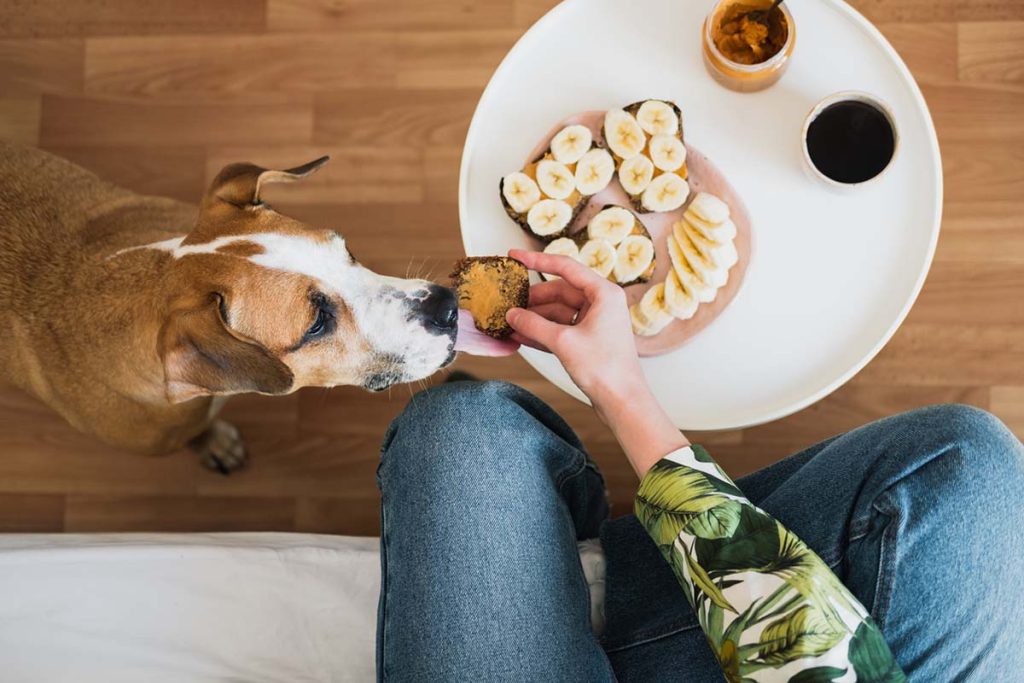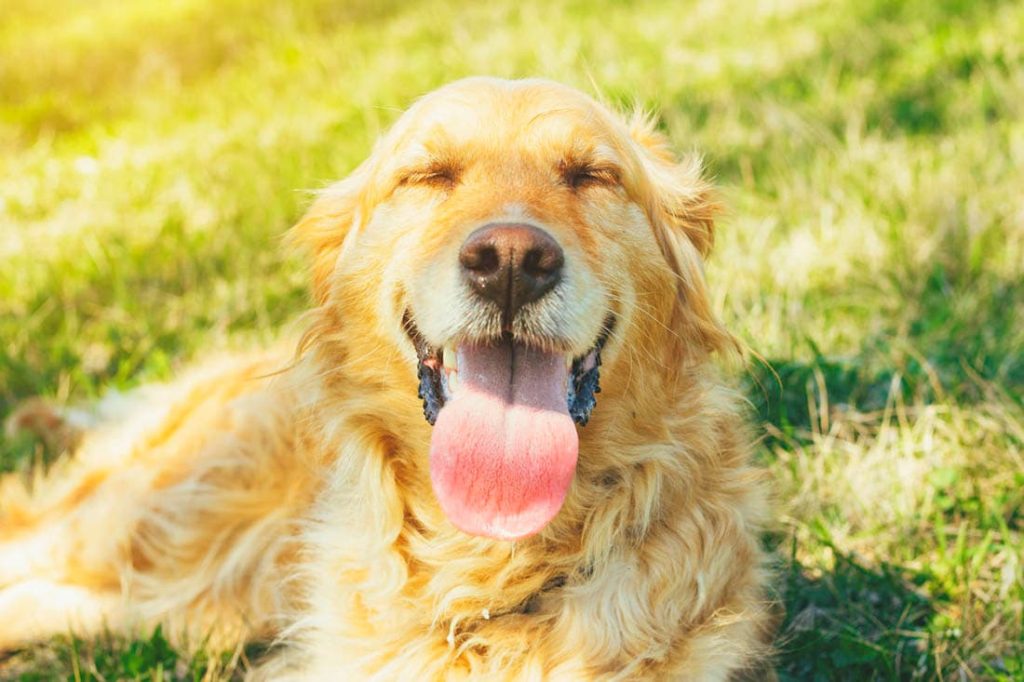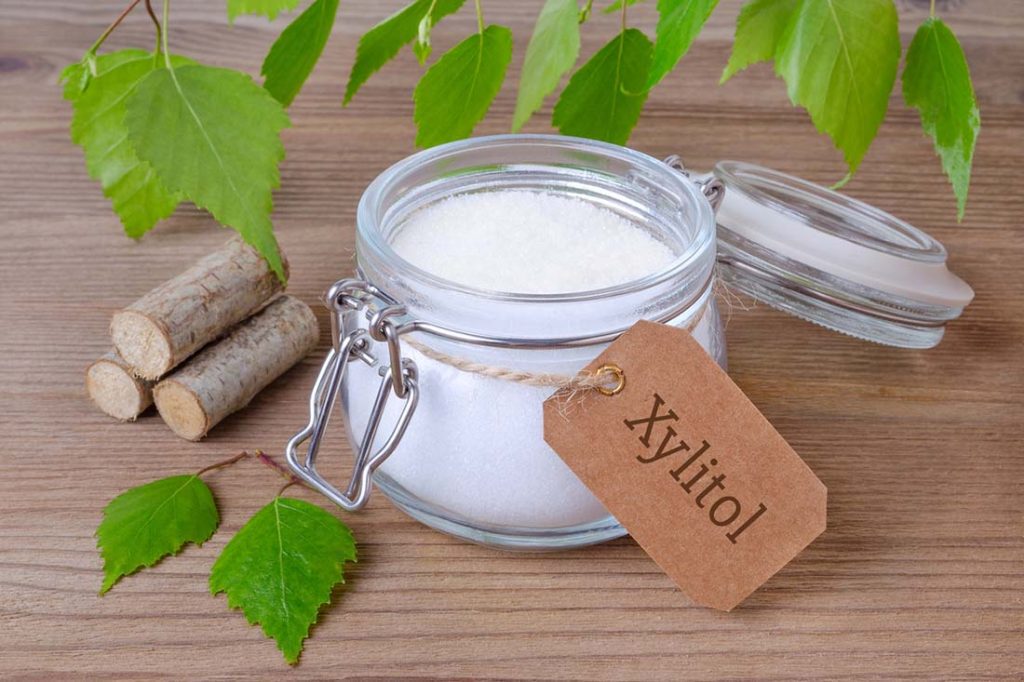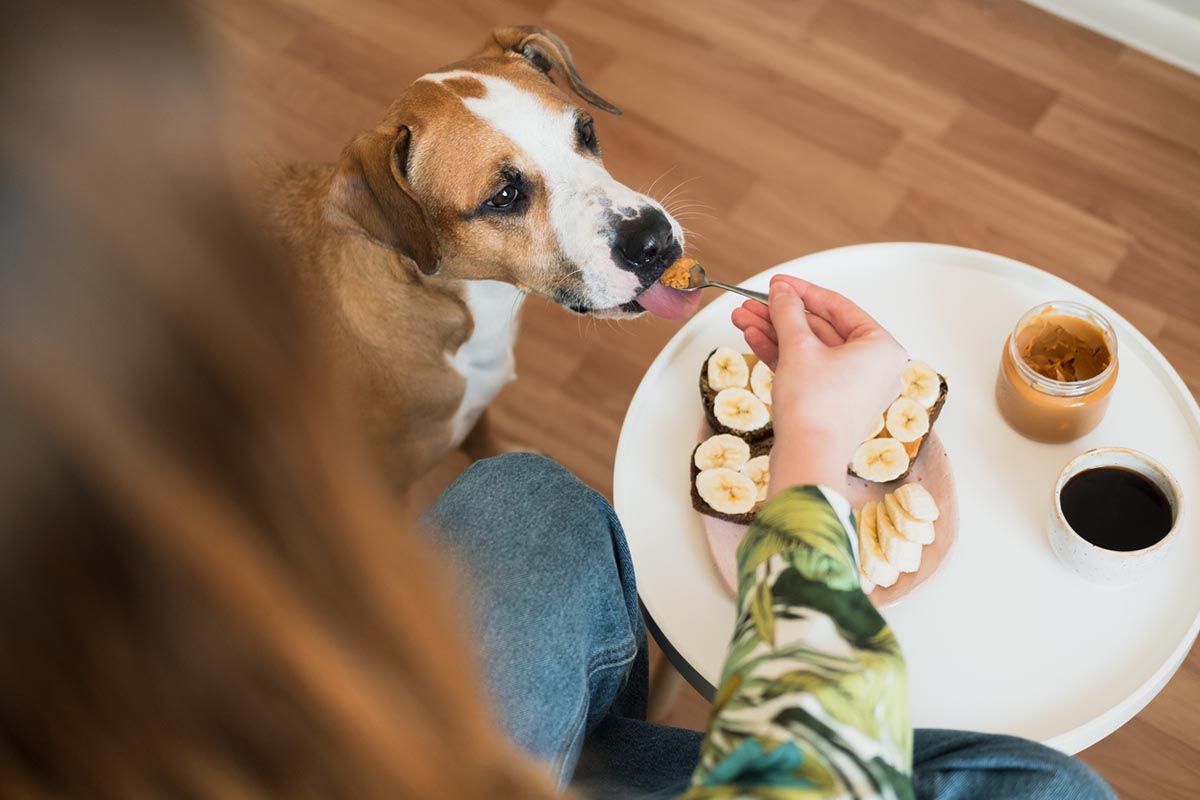Peanut butter is a favorite treat of many dogs, but not all peanut butter is safe to share. Here’s everything you need to know about peanut butter for dogs and why it’s important to read the ingredients list before you share it with your pooch.
Can Dogs Eat Peanut Butter?

Yes! Dogs can eat unsweetened, unsalted peanut butter. The right type of peanut butter can be a healthy addition to your dog’s diet. Whether it’s chunky or smooth, look for natural peanut butter without additives or preservatives to share with your furry friend.
Crunchy Peanut Butter vs. Creamy Peanut Butter for Dogs
While both chunky and smooth peanut butter are considered safe for dogs, smooth is generally considered the safer bet (and easier to spread on the lick mat). The chance of choking or other digestion issues is a lot less when your pup is snacking on smooth PB.
How Much Peanut Butter Can Dogs Eat?
The amount of peanut butter that’s safe to share with your dog depends on their size and health. Small dogs should have no more than one to two teaspoons of peanut butter per day, while larger dogs can tolerate one to two tablespoons per day.
Peanut butter is high in fat and calories, so it’s not necessarily good for dogs struggling with obesity or those not tolerating fat well in order to avoid weight gain. Dogs with a history of pancreatitis shouldn’t eat peanut butter as it can trigger or worsen symptoms of the illness.
Possible Health Benefits of Peanut Butter for Dogs

While filling your dog’s kong toy with the right type of peanut butter is important, there are some great health benefits of this nut butter for pups.
Protein
Protein is an essential ingredient in any dog’s diet, and peanut butter as an occasional treat is a great source of protein. The amino acids dogs get from protein support their immune systems, develop muscle, and maintain a healthy coat and skin. Natural peanut butter has about eight grams of protein per two tablespoons.
Healthy Fats
The healthy fats in peanut butter are called monounsaturated and polyunsaturated fatty acids. These fats help dogs produce energy, generate new cells, regulate hormone levels, and boost brain function. Talk about a big job! Natural peanut butter has about 16 grams of fat per two tablespoons.
Fiber
Peanut butter is also a good source of fiber for dogs. They need fiber in their diet to help with digestion and weight management, which may help prevent health issues like obesity and diabetes.
Fiber slows the breakdown of sugar in your dog’s body and helps them maintain healthy blood sugar. Fiber also helps dogs maintain a healthy gut biome and regular bowel movements. Natural peanut butter has about two grams of fiber per two tablespoons.
Vitamins & Minerals
Peanuts and peanut butter contain a handful of vitamins and minerals that are great for both human and dog diets!
They contain magnesium which dogs need for bone health and muscle function, manganese for energy production and boosting their immune systems, and potassium which helps dogs maintain a healthy heart and nervous system. Peanut butter also contains zinc, niacin, and vitamin B6.
Health Risks of Added Ingredients in Peanut Butter
Your dog’s health is the most important part of your job as a dog owner. While it may be tempting to share any old peanut butter with your dog, some popular brands of peanut butter aren’t safe for dogs. Be on the lookout and avoid peanut butter with these added ingredients:
Salt
Dogs can process a small amount of salt if it’s the only other ingredient in peanut butter, but consuming too much salt can cause serious health issues for dogs.
Too much salt in a dog’s diet can lead to dehydration, digestive issues, and kidney failure. Salt poisoning in dogs can impact neurological function and lead to tremors, seizures, and even comas in dogs. This is why peanut butter with added salt isn’t good to share with dogs.
Sugar
While real sugar isn’t toxic to dogs, their digestive systems can’t process it the same way a human’s can. Large amounts of sugar may affect dogs’ metabolism and cause health issues like obesity, dental decay, and digestive problems. This is why pet parents should avoid sharing peanut butter with added sugars with their pups.
“Sugar Free” Peanut Butter & the Dangers of Xylitol For Dogs

Some peanut butter labeled as “sugar-free” isn’t actually dog-friendly. It may contain an artificial sweetener called xylitol which is extremely toxic to dogs. Ingesting xylitol can lead to potentially life-threatening conditions like hypoglycemia (low blood sugar), seizures, and liver failure.
Other “sugar-free” peanut butters may still contain added ingredients that aren’t good for dogs. While some popular peanut butter brands like Skippy and Jif are xylitol-free, they contain other unsafe ingredients like hydrogenated oils and sugar substitutes like corn syrup.
Brands of Peanut Butter That Are Dog-Safe
The best peanut butter you can share with your dog is the homemade kind! This way there’s no scrutinizing the ingredients list or trying to figure out whether all the ingredients in store-bought peanut butter are safe for dogs.
If you do share store-bought peanut butter with your dog, these are safe peanut butter brands for pets:
- Whole Foods 365 Peanut Butter
- Trader Joe’s No Salt Peanut Butter
- Teddie All Natural Peanut Butter
- Poochie Peanut Butter for Dogs
Try JustFoodForDogs’ DIY Homemade Peanut Butter Dog Treat Recipe!
This DIY dog treat recipe is the perfect combination of peanut butter and other yummy ingredients. Try making this healthy, tasty treat that’s sure to leave your dog satisfied.
- 1/2 cup natural peanut butter
- 4 cups low-fat plain yogurt
- 2 mashed bananas
- 2 tablespoons honey
- 1/4 cup blueberries (chopped)
In a medium bowl mix together the peanut butter, mashed bananas, and honey. Add in the low-fat plain yogurt and stir until combined.
Fill the bottom of a paper or disposable cup with blueberries. Fill the rest of the cup with the peanut butter mixture.
Place the cups in the freezer until the peanut butter mixture is fully frozen (about 2 hours). Once ready, remove from the freezer and serve to your hungry pup!
